CSDE Welcomes Parwati Martin as New Budget/Fiscal Analyst Lead
|
CSDE welcomes a new Budget/Fiscal Analyst Lead to the administrative team! Parwati Martin has been with the University of Washington since 2012 and was previously with the Geography Department for almost 8 years! Parwati has vast experience in her field including receiving an internship from UW Accounts Payable while completing her Bookkeeping Certificate. She received her AA in Accounting at North Seattle College and then went on to join UW in 2012 to work for Housing and Food Services’ Cash Office for four years. She then later joined the Geography Department as Fiscal Specialist in 2016. Parwati’s interests include enjoying the outdoors, weight lifting, hiking, playing with her cat and dog, and dancing, specifically Indonesian Traditional Dance.
We are so excited to have Parwati be a part of the CSDE team. Some of her responsibilities will be to manage staff payroll and components of academic staff/faculty compensation, provide fiscal management of Center and grant funding, and serve as approver for Workday entries. The best way to reach her is by email at pnmartin@uw.edu.
(read more)
|
 |
CSDE Computational Demography Working Group (CDWG) Hosts David Coomes on Examining the Role of Migration in the Rural Mortality Penalty (3/6/24)
|
David Coomes, a PhD student in the Department of Epidemiology and CSDE T32 Fellow (UW) will join CSDE to discuss his work examining the role of migration in the rural mortality penalty. The rural mortality penalty, in which rural areas have higher age-adjusted mortality rates as compared to more urban areas, has emerged over the last few decades in the US. Previous research has focused on characteristics of rural areas, such as access to healthcare, while little work has paid attention to how the process of migration shapes rural populations and impacts population health measures. This project uses national death records and IRS migration data to measure the association between all-cause mortality and migration by county in the US. CDWG Will be Hybrid in Winter Quarter 2024. Attend in-person in 223 Raitt or on Zoom (register here).
(read more)
|
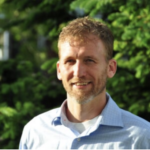 |
Many CSDE-Relevant Grant Opportunities at NICHD!
|
The NICHD has listed many grant opportunities that should be of interest to CSDE affiliates. Check out the list here. If you are interested, CSDE can help you with providing ‘eyes’ for feedback on the narrative, contacting a program officer, more formalized mock review panel of experts to provide feedback on a penultimate draft, a summer grant writing program, or scientific methods consultations. We’re happy to support your science! Just ask!
(read more)
|
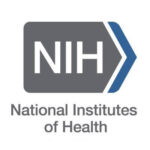 |
CSDE Population Research Planning Grants (PRPGs) (Rolling deadline)
|
Population Research Planning Grants (PRPGs) are designed to provide in-kind support and/or funds of up to $25k* to support a wide array of activity types throughout the development of a research project. As part of our mission to complement rather than duplicate other campus opportunities such as the Population Health Initiative seed grants, we will consider funding a variety of activities. See a list of example activities in the full story!
(read more)
|
 |
CSDE Matching Support to Supplement On-campus Funding (Rolling deadline)
|
CSDE Matching Support includes in-kind or monetary support to accompany a submission to other on-campus funding mechanism, such as PHI, EarthLab, or Urban@UW. All projects must have a CSDE affiliate who is UW faculty and is listed as a PI or co-PI, with any number of other collaborators. Note that we require (PRPGs) or strongly suggest (matching funds) contacting either Development Core Director (Steven Goodreau) or CSDE Director (Sara Curran) to discuss possibilities for your specific proposal before submission.
(read more)
|
 |
Applications open for the Population Health Applied Research Fellowship Program (Info session on 3/4, Applications due 3/29)
|
Applications are now open for the Population Health Applied Research Fellowship Program. This program is run in partnership between the Population Health Initiative and CSDE. The 10-week program is open to graduate and professional students from all UW schools and colleges. The program supports multidisciplinary teams of UW graduate and undergraduate students to work on real-world population health challenges. Projects are sourced from external clients who play an important role in structuring project deliverables.
(read more)
|
 |
*New* Issue of the Journal of Ethnic and Migration Studies
Read Volume 50, Issue 4 here!
(read more)
*New* IPUMS Data (Global Health, NHGIS, CPS)
|
IPUMS released updates for its for its NHGIS and CPS datasets. It also released the IPUMS DHS Climate Change and Health Research Hub, which will help researchers study the relationships between climate change and population health. Read more about each update in the full story!
(read more)
|
 |
Registration Now Open for ICPSR’s Summer Program (sessions available May-Aug. 2024)
|
Registration for the ICPSR Summer Program in Quantitative Methods is now open for their topical workshops and general session. Their general sessions run from June 10-July 5, and from July 8-August 2. Topical Workshops cover a single subject and run for either 20 or 40 hours in just three, five, or ten days, and run from May through August. Sessions and workshops are available online and in-person at the University of Michigan.
(read more)
|
 |
Announcing the next round of the Royalty Research Fund (RRF) (Due 3/4/24)
The Office of Research invites applications to the next round of the Royalty Research Fund (RRF) grant program. Proposals are due to RRF Monday, March 4, by 5:00 PM. Departments and Colleges/Schools may have earlier deadlines, so all applicants are advised to check with their program’s administrative staff. Awards will be announced by June 15, 2024. The purpose of the RRF is to advance new directions in research, particularly:
- In disciplines for which external funding opportunities are minimal.
- For faculty who are junior in rank.
- In cases where RRF funding may provide unique opportunities to increase applicants’ competitiveness for subsequent funding.
(read more)
|
 |
Event on Fostering Connections in AI and Health (3/5/24)
|
The Population Health Initiative is co-hosting a winter quarter Open Space-style event, “Fostering Connections in AI and Health,” on Tuesday, March 5, 2024 from 10 a.m. – 1 p.m. in the UW Husky Union Building (HUB), room 145. The goal of this gathering is to help facilitate new collaborations between UW faculty researchers who are interested in applying generative AI and large language models to pressing health challenges. Those who attend will set the agenda for discussion, offering to convene discussions on possible topics or projects where collaboration is sought. The formal program will be followed by a more informal networking lunch. See the event poster and RSVP at this link to attend.
(read more)
|
 |
Evans Seminar: Dr. Sophia Jordán Wallace from UW’s Dept. of Political Science (3/6/24)
|
The Evans seminar is excited to host a seminar by Dr. Sophia Jordán Wallace (Political Science) on Wednesday, March 6 from 11:30 – 12:30pm in 360 Parrington Hall. Dr. Wallace is a Professor in the Department of Political Science and the Stuart A. and Lee D. Scheingold Endowed Faculty Fellow in Social Justice. She is also the former Director of the Washington Institute for the Study of Inequality and Race (WISIR). Her research interests include the politics of race and ethnicity, Latino politics, immigration politics and policy, public opinion, and legislative politics. Dr. Wallace is currently working on two books: One is entitled, United We Stand: Latino Representation in Congress. The other is called, Immigration Reform: Failure and Success in Congress. Specific talk information will be shared closer to Dr. Wallace's presentation date.
(read more)
|
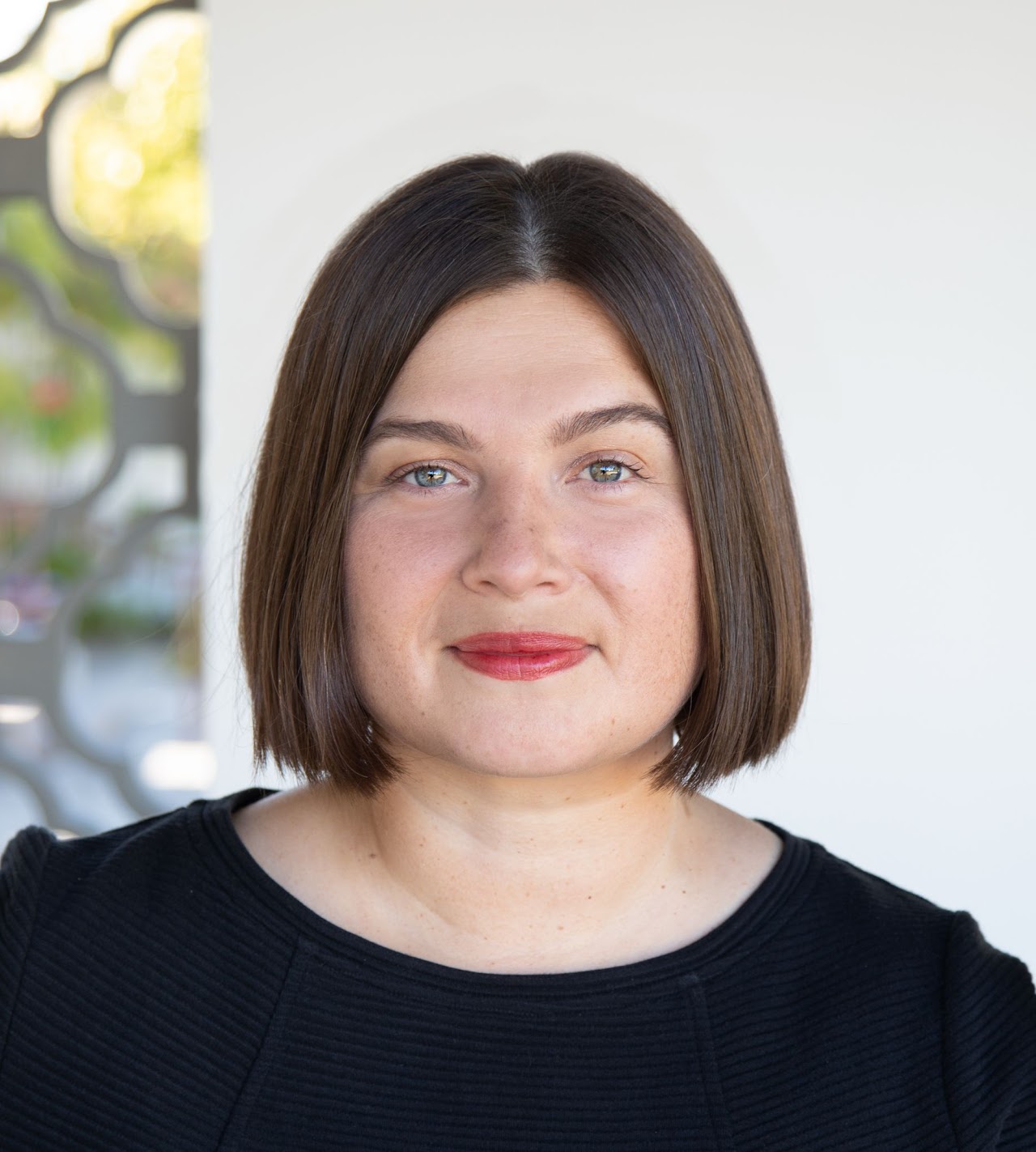 |
CSSS Seminar with Roy Burstein: What is driving low rates of childhood vaccination in DRC? (3/6/24)
|
Join CSSS for a seminar by Roy Burstein on Wednesday, March 6th at 12:30 in 409 Savery Hall and on Zoom (register here). More information coming soon!
(read more)
|
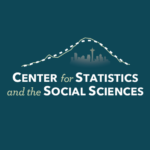 |
Seminar by UW Moris Women’s Center: Budgeting, Spending, & Saving (3/6/24)
|
The UW Moris Women’s Center will host the second seminar of its Financial Empowerment and Literacy Series, co-sponsored by CSDE. The seminar will take place on Wednesday, March 6th from 11:30-1:00 PM in 320 Parrington Hall. Speakers in this series include Rachel McCracken (CFA®, MBA – Team Lead & Wealth Manager), Becky Wilcox (CFA®, MBA, FRM – Wealth Manager), and Larissa Vidal (Wealth Manager). In this third seminar, speakers will discussing different types of investment and allocating financial resources.
(read more)
|
 |
ARPA-H Hits the Ground Running with Sprint for Women’s Health (Proposers day on 3/6/24, Opportunities to be announced)
|
As the first major deliverable of the White House Initiative on Women’s Health Research, the Advanced Research Projects Agency for Health (ARPA-H) announced the ARPA-H Sprint for Women’s Health, which commits $100 million towards transformative research and development in women’s health. ARPA-H will seek funding proposals with revolutionary, evidence-based ideas from a diverse mix of scientific visionaries to improve the lives of millions of women. Awardees will develop unconventional approaches and innovative new avenues to push high-impact biomedical research forward.
(read more)
|
 |
*New* Funding for Projects to Implement Natural Climate Solutions in the Pacific Northwest (Info meeting 3/7, LOI due 4/12)
*New* Writing about Population Research for Non-scientists (On 3/7/24 @11am Pacific Time)
|
Have you ever wondered how to get your research into the hands of policymakers, or wished your findings were known by a wider audience? The Population Reference Bureau (PRB) and the Association of Population Centers (APC) are organizing a webinar to highlight ways to expand the reach of your research by distilling your findings into messages and formats tailored for nontechnical audiences, including policymakers and the media. Panelists from Syracuse University and PRB will describe how to write an effective research brief, common pitfalls in writing for nontechnical audiences, and using social media to communicate about your research. To join the webinar register here.
(read more)
|
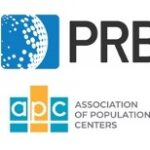 |
NIH Funding for Research on Screening and Treatment for Alcohol, Tobacco, and Other Drugs (Due 3/8/27)
|
The NIH is seeking to fund research to test innovative approaches to implementing SBIRT/P for alcohol, tobacco, and other drugs (ATOD) use and misuse in adult populations that experience health disparities. SBIRT/P, (a term used for purposes of this funding announcement), involves screening individuals for risk of ATOD use and misuse, briefly intervening with a conversation about harmful substance use, and referring individuals for treatment or preventive services, as needed. Proposed research should include prospective tests of SBIRT/P and should leverage collaborations with healthcare and community partners Specific research interests of participating NIH ICOs are detailed within.
(read more)
|
 |
NIH Releases NOSI for Grants Evaluating Digital Technologies and AI Tools (Due: 3/9/24)
|
The NIH is encouraging grant applications to support the evaluation of the utility and validity of digital health and artificial intelligence (AI) tools and technologies in epidemiological, clinical, and intervention research. The intent is to support the addition of new measurement modalities to evaluate existing and recently developed but not yet validated digital health and AI tools such as sensor technologies, smartphone applications, software as a medical device (SaMD), and AI algorithms.
(read more)
|
 |
Call for Submissions: IAPHS’s 2024 Fall Conference (Due 3/10/24)
|
The Interdisciplinary Association for Population Health Science (IAPHS) is accepting panel and abstract submissions from December 1, 2023 to March 10, 2024 for their fall Conference “Tackling declining life expectancy in the US: investigating social drivers and policy solutions”. They are also calling for abstract reviewers and award nominations. Learn more about each of these opportunities in the full story.
(read more)
|
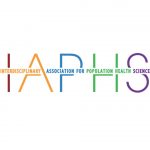 |
*New* Opportunity for Grad Students and Postdocs Interested in Climate Justice (Due 3/11/24)
|
Are you a grad student or postdoc who is interested in exploring interdisciplinary climate and social justice frameworks, and applying them to your work? Consider applying to the UW Climate Impacts Group and Northwest Climate Resilience Collaborative’s first-ever Science Justice Summer School! This free two-week program will dive into a range of justice-related topics through lectures, discussion groups and more. Applications close Monday, March 11 at 11:59 p.m.
(read more)
|
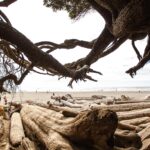 |
Apply Now: Systems Science/Data Science Training to Advance Community Health Research (3/11/24)
Apply for travel funding to attend 2024 IAPHS Conference (Due 3/11/24)
|
IAPHS greatly values and encourages student participation at the annual conference. The 2024 conference in St. Louis, Missouri will offer a variety of sessions of interest to students with lunchtime sessions specifically planned for students. They are pleased to offer travel scholarship funds for a limited number of students to attend the conference. Applications will be accepted beginning January 10, 2024 and will close on March 11, 2024. Learn more here.
(read more)
|
 |
Catalyst Award Competition from the National Academy of Sciences (Due 3/11/24)
|
The National Academy of Sciences has opened their Catalyst Award Competition, which seeks to reward bold, new, potentially transformative ideas to improve the physical, mental, or social well-being and health of people as they age, in a measurable and equitable way. They will issue up to 18 Catalyst Awards in 2024 to U.S.-based innovators. Each Catalyst Award includes a $50,000 cash prize in addition to other benefits. This opportunity was shared with us from UW’s team monitoring corporate and foundation opportunities.
(read more)
|
 |
Two Opportunities for Funding: NIH Firearm Injury and Mortality Prevention Awards (Due 3/15/24)
Save the Date: Virtual Workshop on Climate Change and Human Migration (3/18 and 3/19/24)
*New* Limited Submission Opportunity – NSF Call for General Social Survey Competition (LOI due 3/20/24)
|
There is a Limited Submission Opportunity (LSO) for UW researchers and collaborators to take up the leadership of the General Social Survey (GSS) and the International Social Survey Program (ISSP). The NSF solicitation can be found here. This major effort to continue and innovate the longstanding surveys with funding from the NSF requires only one submission from an institution. Within the UW, the Limited Submissions Office will select one competitive applicant.
(read more)
|
 |
*New* Queer Demography Summit (3/29/24)
|
The Office of Population Research at Princeton University presents the Queer Demography Summit on Friday, March 29th from 8am to 6pm (ET). This historic day-long summit brings together some of the nation’s and the world’s leading demographers of queer populations to discuss the state of queer demography. It will examine how the field has challenged and advanced general understandings of core demographic methods and research practices, as well as contributed substantive new knowledge on queer people’s health and wellbeing, family dynamics, migration patterns, experiences of inequality, and much more. This summit will be conducted in a hybrid format, with a required registration. Register for in-person here and for the Zoom webinar here.
(read more)
|
 |
|

